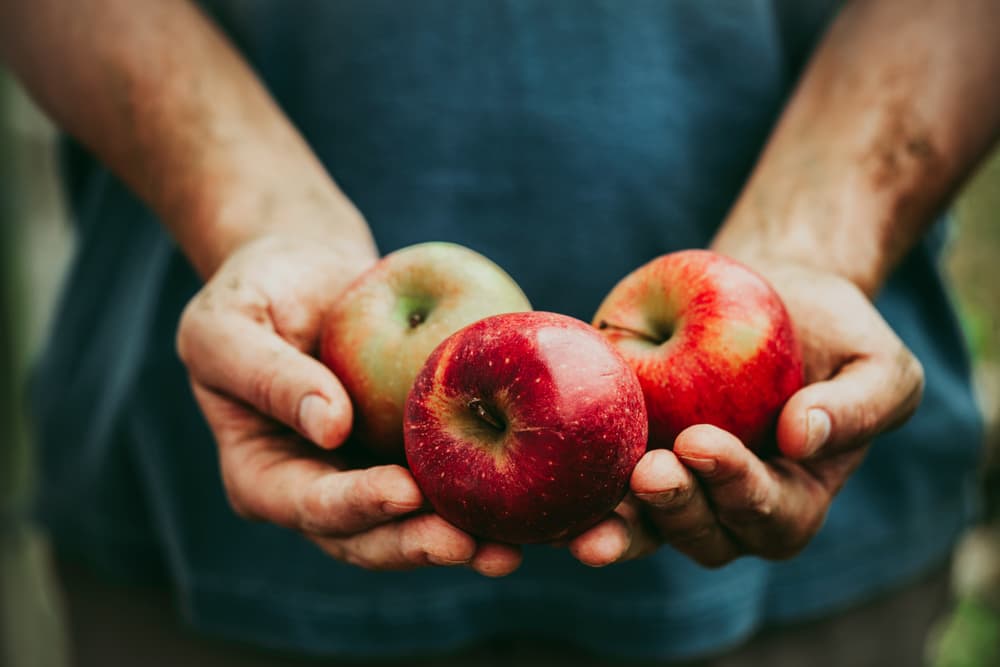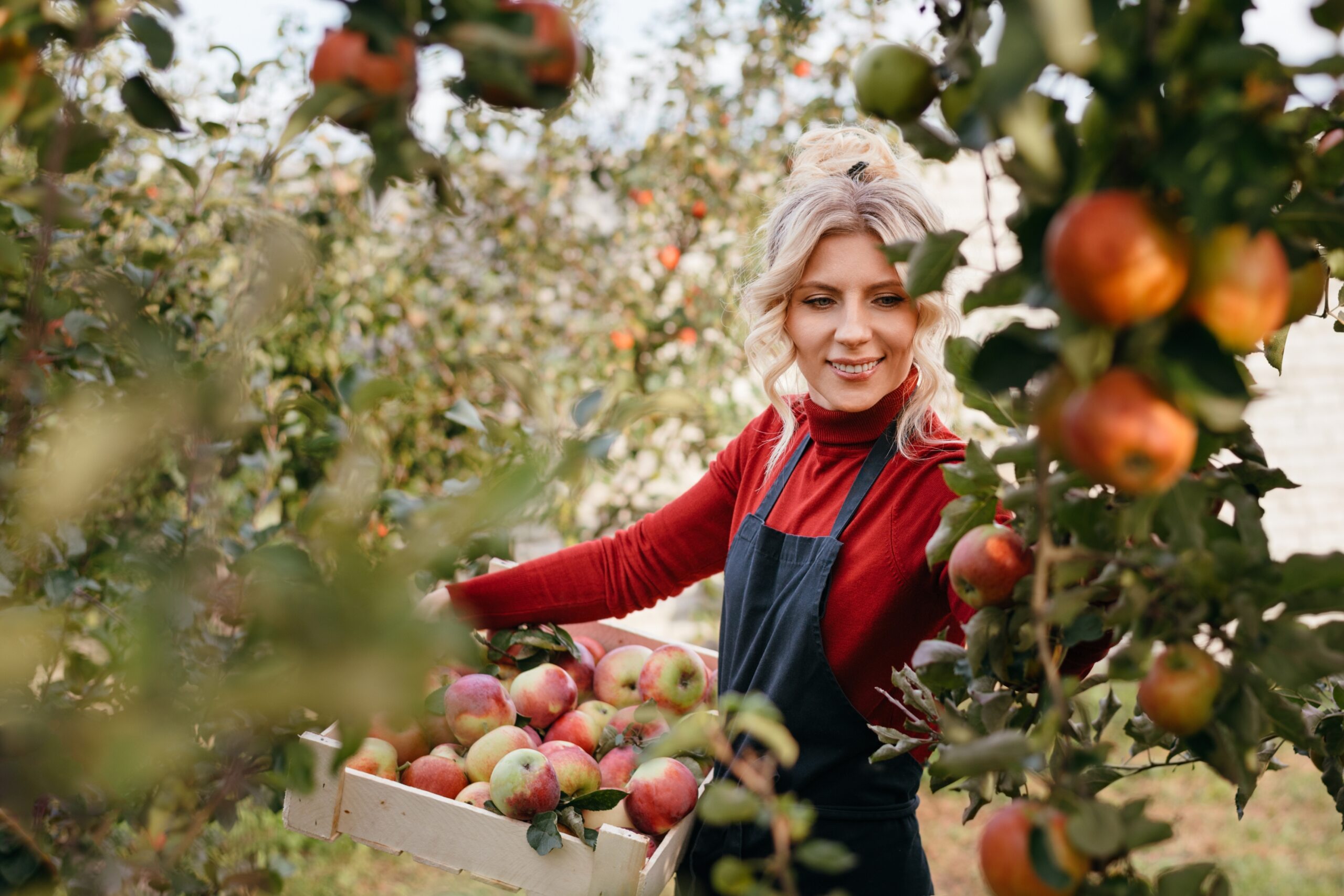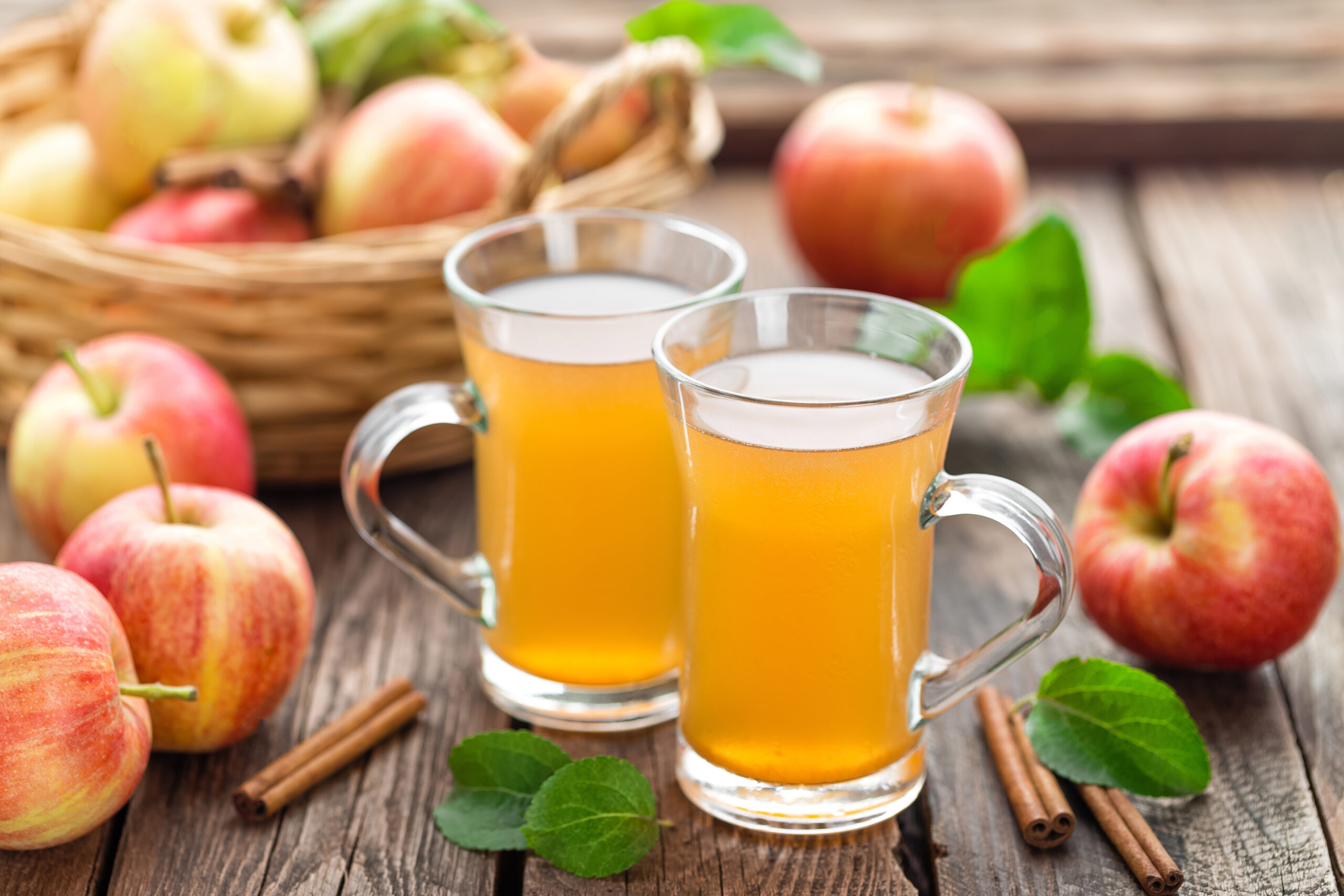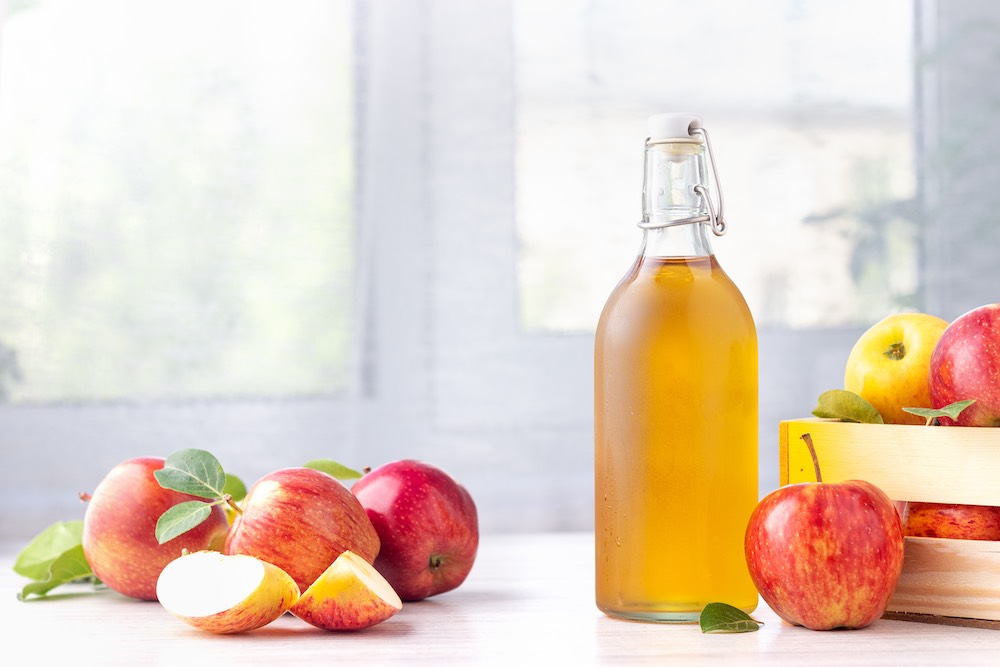When you are at the grocery store looking to buy apples, have you ever wondered why some are marked organic and others are not? Of course, one would think all apples are organic since they grow on a tree and are a healthy fruit to eat.
However, that is not the case. All apples are not grown organically and therefore do not earn an organic label. Find out what it means when an apple is labeled organic and why you should always try to eat organic apples or products made with them.
What Does Organic Mean in Produce?
According to the USDA, organic produce is grown while following federal guidelines that direct how organic produce should be grown. These directives can include the soil quality conditions the crop is grown in, how growers control pests and weeds, and the use of additives.
An apple can only be labeled organic if the soil the trees were grown in contains only natural and not synthetic substances. Synthetic substances such as fertilizers and pesticides cannot be applied to the soil for three years before harvest to be considered organic. Farmers must use traditional and natural physical, mechanical, and biological farming methods to grow organic crops.
Freshness
In conventionally grown apples, a fungicide called diphenylamine is applied after the harvest to prevent skin browning while the apples are stored. However, this chemical can affect the health of your kidneys, bladder, or liver.
Apple storage techniques use calcium chloride to prevent skin browning as well. Finally, ethylene inhibitors are applied to reduce the ethylene gas that hastens the ripening of fruits when in storage. So when these apples become available for purchase, they are not fresh and are doused with chemicals that can adversely affect your health.
Since no natural fungicides are available to apply to organic apples to prevent skin browning while being stored, they are preserved in an atmosphere that apple storage warehouses must carefully control, where precision equipment monitors and sets the optimum atmosphere levels to keep organic apples longer. As a result, when they arrive at the supermarket, they are as fresh as the day they were harvested, with no harmful chemicals.
Fewer Pesticides
Chlorpyrifos is a non-organic insecticide that farmers have sprayed on crops since the mid-1960s. Unfortunately, Chlorpyrifos has been linked to nervous system damage or even death when exposed to high doses.
When growing organic apples, releasing beneficial insects that rid the pests attacking the apple tree is one organic method used in pest control. Another method is spraying trees with organically approved insecticides, such as paraffinic oil, kaolin clay, or spinosad, which controls pests without toxicity. Diatomaceous earth and moth traps are other organically approved pest control methods for apple orchards.
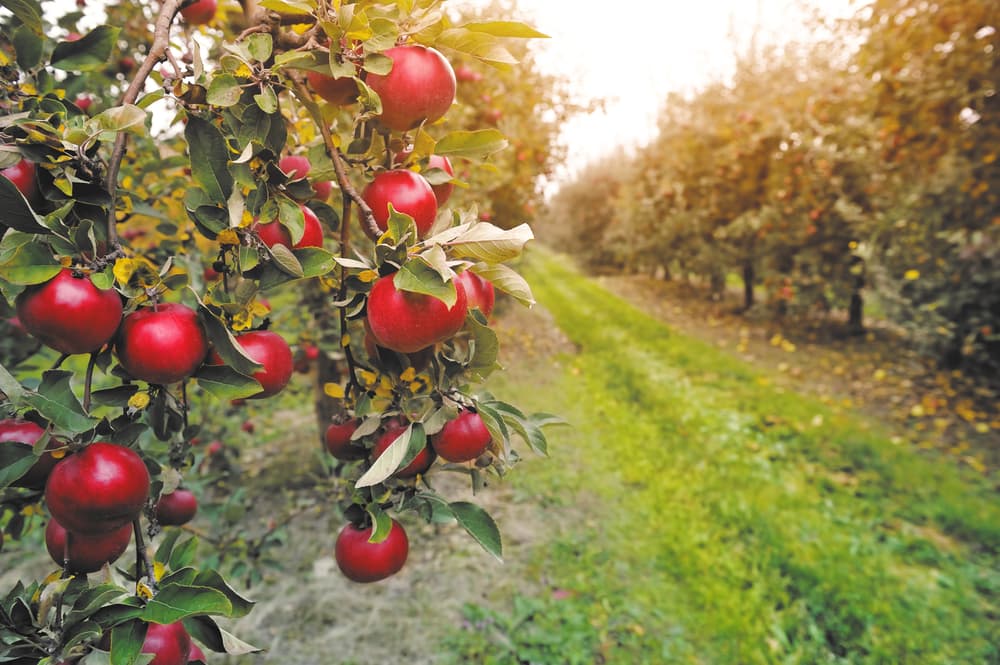
Image Credit: Fotystory.pl/Shutterstock
How Do Pesticides Work on Apple Orchards?
Pesticides are sprayed on average every 14 days from pre-bloom to harvest, except during the blooming stage. No pesticides are sprayed during the blooming phase to avoid harming pollinators. However, plenty of pests can attack the apple tree, so customizing the proper formulation of pest control to the correct pest is key to pest control in apple orchards.
Reasons Why to Choose Organic Apples and Products Made from Organic Apples
Of course, the number one reason to choose organic apples or products made from organic apples is that pesticides and additive chemicals applied to non-organic apples are toxic. In some cases, organic wax is applied to apples to replace the wax the apples lost during the washing process. The wax prevents the apple from losing moisture.
If the washing process did not clean all of the pesticide chemicals from the apple, the chemicals could be sealed in when the wax is applied. So when you wash the apples, you won’t be able to get rid of the residual pesticide chemicals left on the apples.
Other reasons to choose organic apples and products made from organic apples include:
- Organic apples don’t require extra scrubbing when eating, cooking, or baking with them.
- Organic apples don’t poison you or the orchard workers.
- Organic apples are as fresh as the day they were harvested and taste better.
- Organic apples are as affordable as non-organic apples when they are in season.
Choose Organic Non-GMO Apple Products from North Coast Organic
Our apple products are 100% natural, organic, and certified by the USDA. Not only are our apple cider vinegar, apple sauces, apple juice, and ciders made from organic apples, but we don’t incorporate genetically modified organisms into our products. Check out our store locator to shop now.
Featured Image Credit: mythja / Shutterstock

